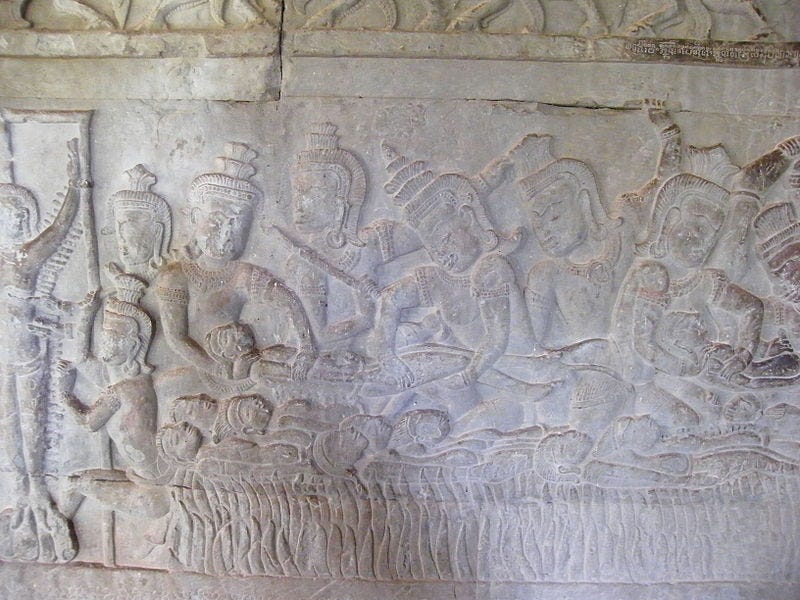Universalism is not the denial of hell, or at least, a hell or hells. The thing is, there isn’t any one hell. By this point the philological background to hell in biblical literature has been well publicized: Sheol is the Jewish underworld, Gehinnom or Gehenna (whence Arabic Jahannam) is a cursed valley outside of Jerusalem associated with child sacrifice (Jer 7:31; 19:2-6)1 and punishment of the wicked in the final battle and/or judgment in Jewish prophetic and apocalyptic texts, and Hades is the Greek analogue to Sheol. So, in the Hebrew Bible, there is an underworld; people do go there, in a kind of ghostly form, and do live there, and can be interacted with from there, though the biblical authors are uncomfortable with the cult of the dead from Ancient Israel and Judah, and seek to instead propose the importance of this life to the reader; most people, actually, end up there, with some exceptions (Enoch; Moses?; Elijah; etc.). This is a “hell,” but not the hell of later Christian imagination: it’s simply an underworld in which a ghostly afterlife takes place, still theoretically communicable with the world of the living by specialized rites or magic, the natural and normal future of most human beings.
Keep reading with a 7-day free trial
Subscribe to A Perennial Digression to keep reading this post and get 7 days of free access to the full post archives.




